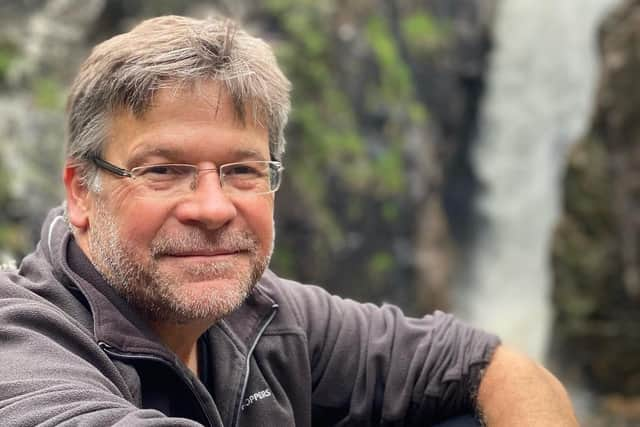Are we all missing the point in the drama of most prominent family in the land? - Gavin Matthews
The social media commentary repeatedly asks us to take sides in the tragedy of this family breakdown, much as a circle of friends fractures when a couple within it files for divorce.
Everyone has an opinion, from the anonymous Twitterati, to Oprah’s endorsement of the Sussexes to Jeremy Clarkson’s outburst for the other side. Newspapers and mini-series are sold, advertisers see opportunities, publishers get presses rolling, while the subjects of the drama scrabble for the moral high ground and monitor their poll ratings.
Advertisement
Hide AdAdvertisement
Hide AdThe interested royal-watchers consume their newsfeeds voraciously, becoming ever more wounded on behalf of whichever side they deem to be the real victims of the piece while more cynical bystanders dryly reflect on the toxic symbiosis of celebrity and paparazzi, royalty and journalist, press officer and tabloid-editor.


But what if we are all missing the point? What if, instead of relishing the latest instalment of this real-live soap-opera, as it unfolds across our screens, papers, phones and bookstores, it makes us reflect more carefully upon our own lives and relationships?
What if, instead of sitting in smug judgement over whichever lot we think are in the wrong, we took stock of the quality of our own relationships? What if, instead of indulging in this national schadenfreude feast, we thought about how successful we have been in handling pain, prejudice and disloyalty, or whether the love of money has ever made us treat people as means rather than ends? Perhaps it is time we each looked away from the hierarchies of state to ask if we have ever misused power or influence to the detriment of others; be it playground or boardroom politicking?
We might never know the motivations of people we have never met, who are reported to have said things we didn’t hear, behind doors we will never darken. But we do know a little about ourselves.
We know if we have ever excluded others, had a racist thought, been disloyal or greedy – or lashed out in response to our own sense of having been wounded. Just as significantly, we are often guilty and inadequate when it comes to our willingness and ability to heal relationships which have failed. Because these are all manifestations of the flawed humanity we share with the most prominent and powerful.
In Jesus’ teaching, he calls us to initiate truth and reconciliation whether we are the wronged party or if we have ourselves wronged others. In his timeless wisdom he calls us first to reflect on our own flaws, then seek ultimate forgiveness from God.
True forgiveness doesn’t minimise or downplay offence, but owns it, and names it – and creates a path out of it. Because finally it is as C.S. Lewis observed that we will be empowered to forgive the unforgivable in others, when we have known God forgiving the unforgivable in us.
Gavin Matthews for Solas
Comments
Want to join the conversation? Please or to comment on this article.